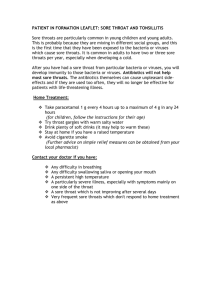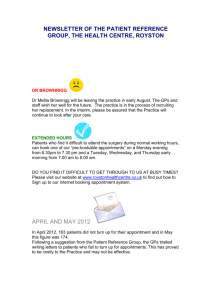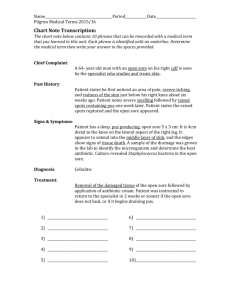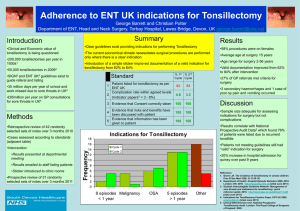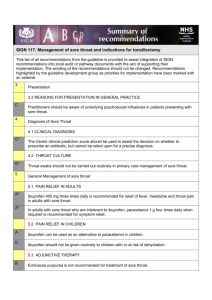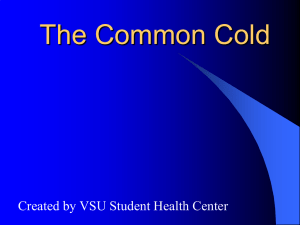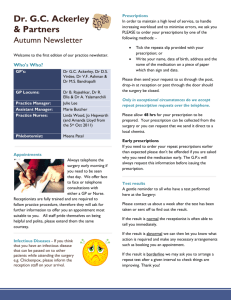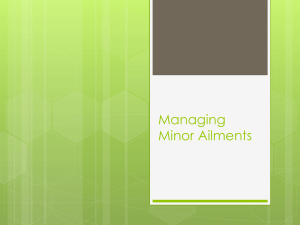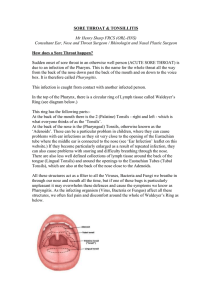PATIENT INFORMATION LEAFLET: TONSILLECTOMY It is common
advertisement
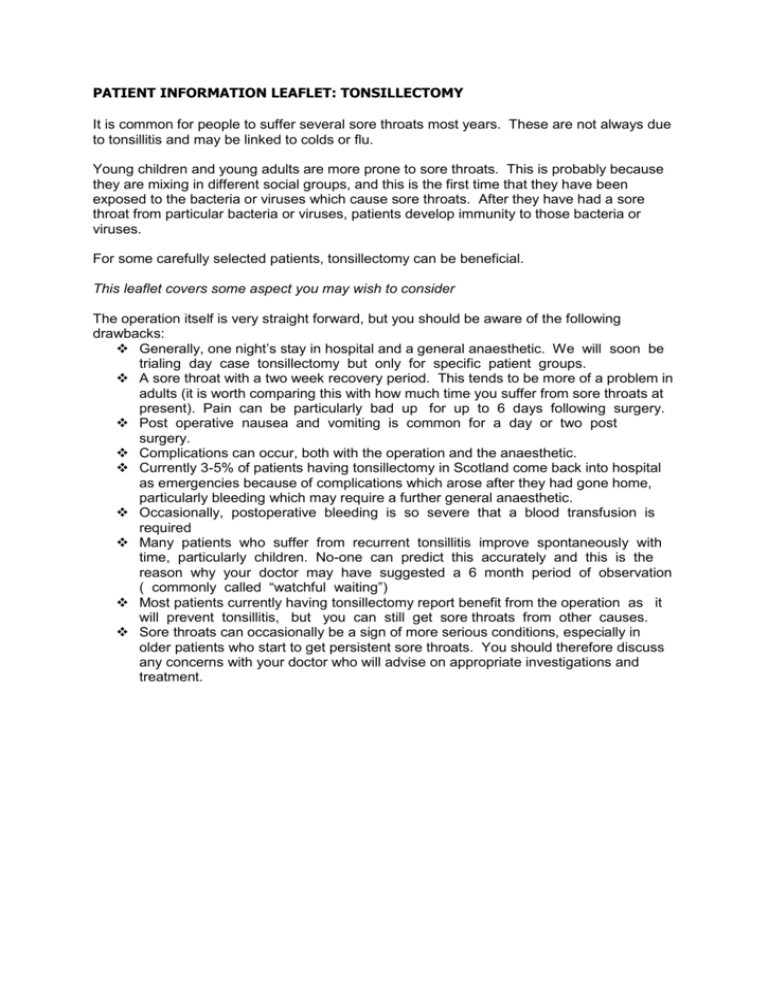
PATIENT INFORMATION LEAFLET: TONSILLECTOMY It is common for people to suffer several sore throats most years. These are not always due to tonsillitis and may be linked to colds or flu. Young children and young adults are more prone to sore throats. This is probably because they are mixing in different social groups, and this is the first time that they have been exposed to the bacteria or viruses which cause sore throats. After they have had a sore throat from particular bacteria or viruses, patients develop immunity to those bacteria or viruses. For some carefully selected patients, tonsillectomy can be beneficial. This leaflet covers some aspect you may wish to consider The operation itself is very straight forward, but you should be aware of the following drawbacks: Generally, one night’s stay in hospital and a general anaesthetic. We will soon be trialing day case tonsillectomy but only for specific patient groups. A sore throat with a two week recovery period. This tends to be more of a problem in adults (it is worth comparing this with how much time you suffer from sore throats at present). Pain can be particularly bad up for up to 6 days following surgery. Post operative nausea and vomiting is common for a day or two post surgery. Complications can occur, both with the operation and the anaesthetic. Currently 3-5% of patients having tonsillectomy in Scotland come back into hospital as emergencies because of complications which arose after they had gone home, particularly bleeding which may require a further general anaesthetic. Occasionally, postoperative bleeding is so severe that a blood transfusion is required Many patients who suffer from recurrent tonsillitis improve spontaneously with time, particularly children. No-one can predict this accurately and this is the reason why your doctor may have suggested a 6 month period of observation ( commonly called “watchful waiting”) Most patients currently having tonsillectomy report benefit from the operation as it will prevent tonsillitis, but you can still get sore throats from other causes. Sore throats can occasionally be a sign of more serious conditions, especially in older patients who start to get persistent sore throats. You should therefore discuss any concerns with your doctor who will advise on appropriate investigations and treatment.
